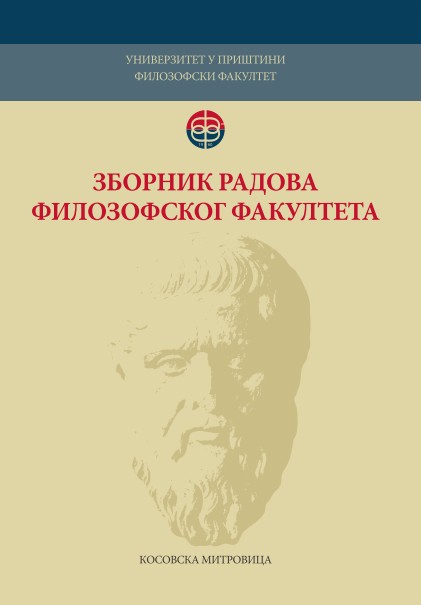Ефекти деловања контекстуалних чинилаца на квалитет математичких постигнућа ученика
The effects of contextual factors on the quality of students' mathematical achievement
Author(s): Aleksandra AnđelkovićSubject(s): Social Sciences, Education
Published by: Филозофски факултет, Универзитет у Приштини
Summary/Abstract: Teaching is a complex process, which, in addition to an exceptional knowledge of the teaching process by the teacher, requires and implies a number of correlative relationships and factors that affect student achievement. The subject of this paper is the analysis of a broader network of potential contextual factors of action on student achievement in mathematics. Accordingly, the aim of the paper is focus on insight of resources of the educational system and the particular circumstances that influence the quality of achievement of students in mathematics. Three sections are considered by theoretical analysis: the impact of mathematics teachers 'professional education on the quality of student achievement, teachers and teaching strategies as a basis for building mathematical anxiety or student resilience, and the role of the school context and analysis of students' specific difficulties in mathematics. Vocational teacher education is one of the initial segments of developing quality in a teacher's vocation, while later professional development is an opportunity to influence not only teacher competences but also the outcomes of student learning. There is a tendency that the education of mathematics teachers and the education of teachers, also future teachers of mathematics, does not give sufficient support to all competencies required for practical work. Significant focuses are on construction and knowledge, while there is less focus on developing teaching competencies. For these reasons, a number of recommendations emerge to include the development of teaching skills in the initial education and training of mathematics teachers, with the aim of improving mathematics in practice and improving student outcomes. Teachers and teaching strategies are the factors that underpin mathematical resilience or anxiety in students, and thus represent variables with a direct impact on mathematics achievement. Mathematical failure can have a strong negative effect on the later life and work of individuals, while the teacher can influence the onset of mathematical anxiety, or through good programs and thoughtful activities can build mathematical resilience and enhance students' achievement in mathematics. The school context and the specific difficulties of the students in mathematics are part of the factors on which the success of the students in this subject depends, because an effectively organized school system causes the development of the maximum potential of students. The paper confirms the opinions of numerous authors that it is necessary to identify and correct specific difficulties in the school environment. Qualitative analyzes partially open the implications for school practice, which indicate the existence of students who are more difficult to master mathematics, but also the fact that the extra work of teachers with them significantly influences the elimination of existing difficulties. By considering the aforementioned aspects of classroom practice and their impact on students' achievement in mathematics, further research was opened that would more specifically address the contexts and modes of mathematics instruction, with particular attention to the existence of students with specific difficulties in mathematics and the key role of teachers in their recognition.
Journal: Зборник радова Филозофског факултета у Приштини
- Issue Year: 50/2020
- Issue No: 1
- Page Range: 25-42
- Page Count: 18
- Language: Serbian

